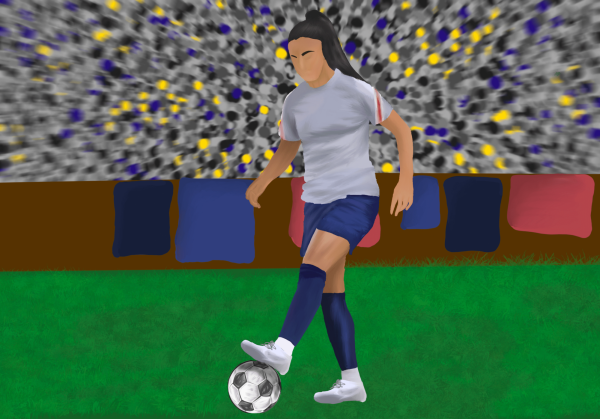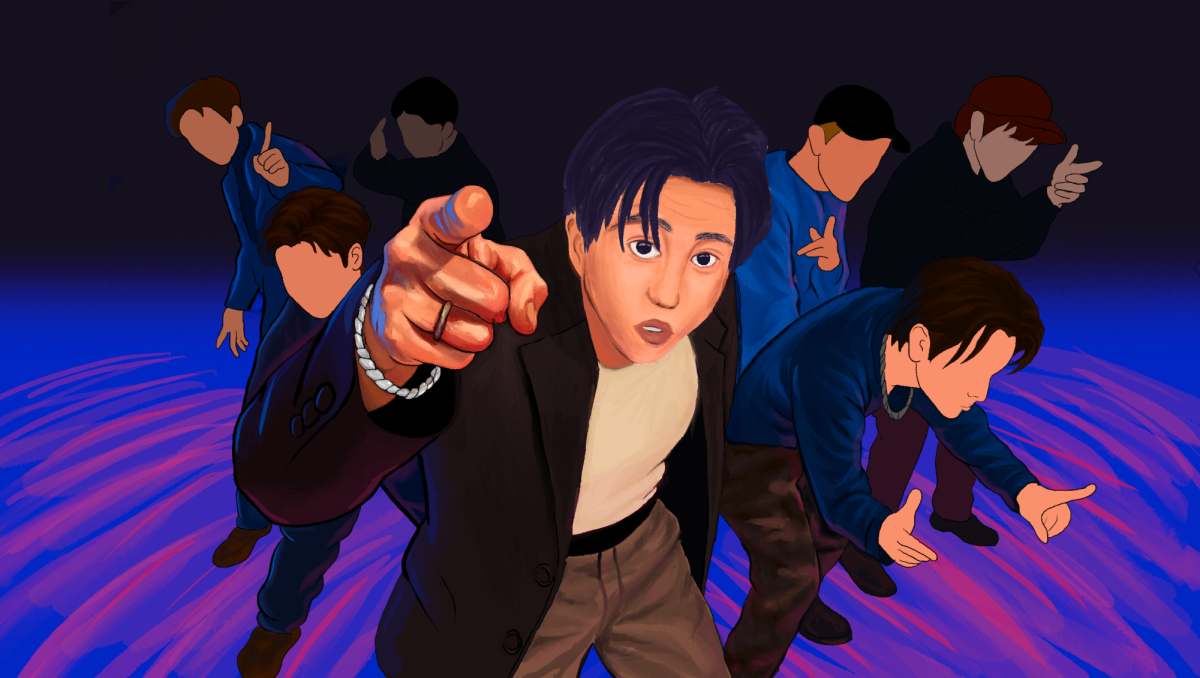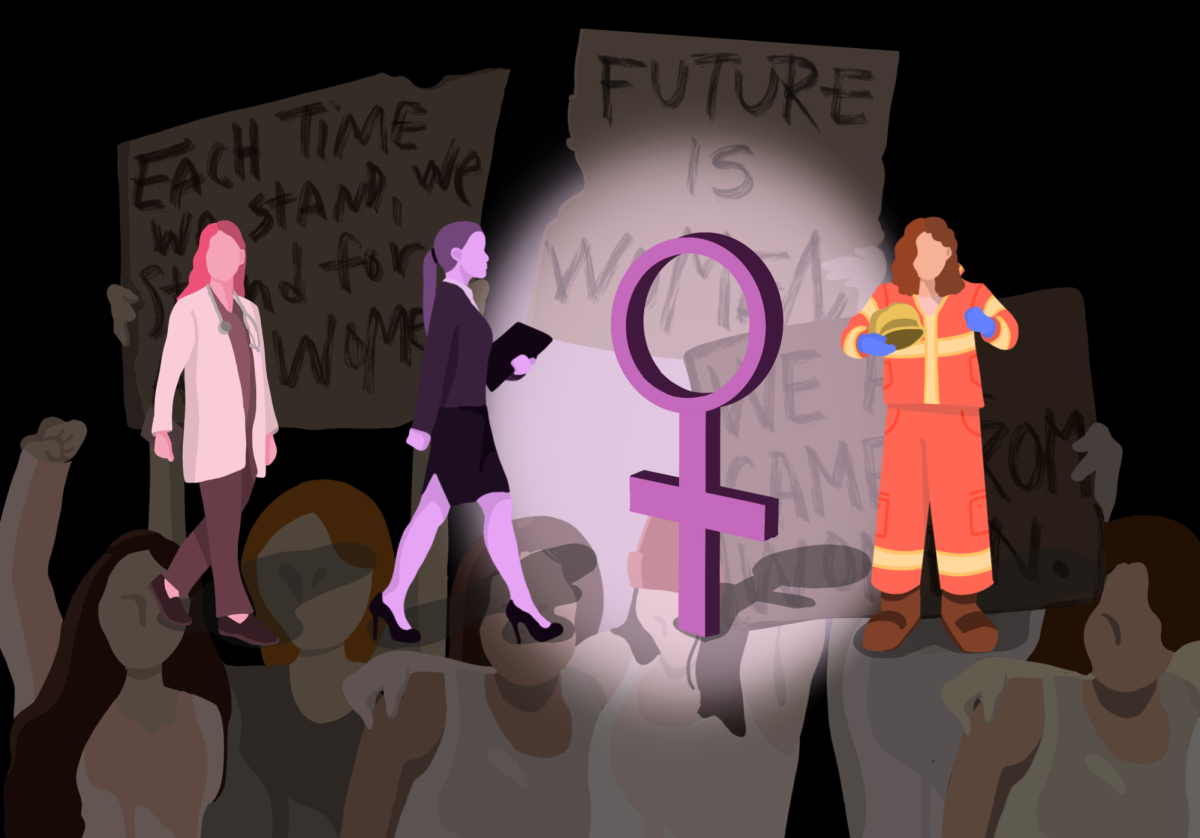Many women and girls face a fate they are conditioned to accept from a young age. “Don’t be so bossy. Don’t be so dramatic,” “He picks on you because he likes you,” and “Don’t wear that to school, you’ll distract the boys”— these phrases chip away the “human,” dignity and self-respect women hold. In society’s eyes, girls should sit there and be pretty. Violence and disrespect just mean attraction from boys, and no matter how she submits and conforms, she’ll never be good enough.
This sense of inadequacy stems from the heterosexual male culture that reserves admiration, respect, idolization and honor for men only. Women are reduced to transactional roles: caregivers, nurtures, and sexual partners. Patriarchal norms devalue feminine complexity not only in the eye of a man but herself.
Internalized misogyny denotes when women subconsciously adopt this social disdain, judging their sisters through the eyes of a man. When a woman deviates from the social norm, other women criticize her for being “too emotional” or “too sensitive” to mold them into a recluse.
This same force alienates those who conform to traditional femininity. “Pick me girls” and “cool girls” — where girls garner male attention by distancing themselves from other women. These girls reject anything “girly” — the color pink, skirts, makeup — not because they dislike it but because of the label femininity attracts: weak, incapable, shallow and dumb. Both fall victim to a patriarchal structure pushed onto them for centuries. In tearing down others, she betrays herself as much as the woman she tore down.
Similarly, the phrase “like a girl” demonstrates how society associates femininity with disempowerment. The famous commercial #LikeAGirl asked: “Can you run like a girl?” Older women hesitated before skipping foolishly, flopping their frail arms — the instructions, attached to their identity, reduced them to something weak, laughable and talentless.
As a solution to this, microfeminism – small, intentional acts that revolt against gender norms –swept the Internet to flip the script. This movement leads women to question how they play into gender norms, both internally and externally.
The “original” TikTok posted by Ashley Chaney (@imashleychaney) popularized the trend as she shared her microfeminist act: always putting the woman’s email in front of the man’s in professional correspondence. Though subtle, such actions actively push back against implicit biases.
As a newfound “microfeminist,” I take small actions to empower myself and other women. For one, I assume bosses and doctors are women. This questions the general assumption that men hold positions of power. Instead of attributing men with their last names and women with their first (Donald “Trump” but “Kamala” Harris), I do the opposite now. I call him Donald and her Harris.

Microfeminists also refer to men’s sports teams as “men’s football” instead of “football” to challenge how people refer to male athletics without pronouns. Some take the extra step to label all women’s sports as “football,” making it their status quo.
These micro shifts in behavior and language foster strength and solidarity. Women grow, adapt and thrive — not in spite of their complexity, but because of it. Embrace acts of microfeminism – refuse to step aside for a man barreling down the sidewalk. Claim the armrest when you’re in the middle seat. These small acts subvert societal expectations every day.





















































Ms. Morissette • Jan 17, 2025 at 9:02 am
I love reading what is on your mind, Selina!! I’m trying to work on being more upfront as my microfeminism action. Thank you for sharing this important read!
Turtle • Jan 16, 2025 at 6:23 pm
WOW amazing LOVED IT. Really INSIGHTFUL.
I’ll try it out!
Avid feminist • Jan 16, 2025 at 12:55 am
Yessssssss